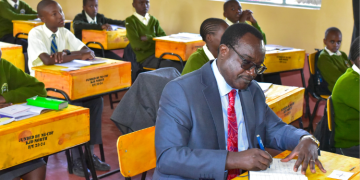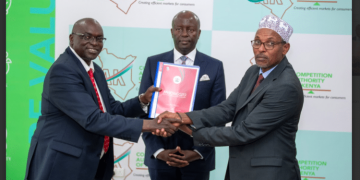In Ethiopia, women’s participation in higher education is less as compared to men. Gender disparities have been observed at different levels of educational system. Although there are efforts to address gender disparities, challenges around enrollment rates in higher education institutions, better academic performance and representation of women in leadership positions in higher education institutions still exist. High dropout rate has been observed at elementary level, and this is one of the major challenges for the enrollment of women in colleges and universities.
Lack of parental counselling, poverty and cultural constraints lead to lower enrollment rates in higher education for Ethiopian women compared to men. This disparity is prevalent in undergraduate and graduate programs.
Universities need to embed sustainable development principles across disciplines with particular focus on training female students to understand how the SDGs will impact their future work and promoting research on the interconnectedness of the goals.
At the same time, academic contributions of female qualified academic staff in the universities need to be strengthened for the practical role of women in achieving sustainable development goals.
Also Read: Reimagining Higher Education: The Entrepreneurial University as Africa’s Beacon of Hope
It’s important to further offer the stipends and free higher education to women for their encouragement.
Although in recent years, women have vital placement in the leadership positions in higher education institutions. Low academic performance among women needs to be addressed immediately.
Tough choices for women in Ethiopia
One of the major challenges facing women’s enrollment in higher education are the cultural constraints that need to be addressed through counselling.
Importantly, parents should take the lead in molding their children.
Also, social media should play a significant role in motivating parents to enhance the enrollment of women in higher education.
Ethiopia is actively working to improve women’s participation in universities, but significant challenges still persist.
A report by the UN Women states that 17% of young women are living in extreme poverty. One in every ten women lives in extreme poverty.
Secondly, women are significantly underrepresented in Science, Technology, Engineering, and Mathematics (STEM) fields in Ethiopian higher education. While this is the case, men continue to dominate these fields, which are crucial in the modern world.
Thirdly, women are significantly underrepresented in leadership and administrative positions within higher education institutions.
Unemployment and low enrollment of women is a serious concern that requires urgent attention.
Also Read: Why Women in Africa Need Higher Education Empowerment
According to a 2023 report by UNICEF, “although most children enroll in school, many do not progress, with only 33.1 per cent making it to secondary school.
The quality of learning is also a major challenge, with 90 per cent of 10-year-olds not knowing how to read or understand a simple text-based sentence”.
Poverty is also a major challenge affecting higher education among women in Ethiopia
Ongoing Efforts
Various successful initiatives including mentorship programs have been launched to address the challenges for women higher education in Ethiopia.
In 2025, the United Nations and various organizations are actively involved in supporting initiatives to boost women’s access to and quality of higher education in Ethiopia.
These efforts include particular initiatives focusing on expanding access of women for higher education, enhancing the quality of education and eradicating poverty.
Additionally, the United Nations agenda in Ethiopia seeks to ensure that all girls and boys have equal access to quality early childhood development. This is important as it prepares them for primary education by 2030.
Ethiopian Women’s Leadership Program (EWLP) aims to strengthen the educational outcomes of female university students by providing leadership training, mentoring and support.
Overall, there is urgent need to address cultural, social and financial barriers that hindered the progress of women in higher education.
Follow our WhatsApp Channel and X Account for real-time news updates.















































































